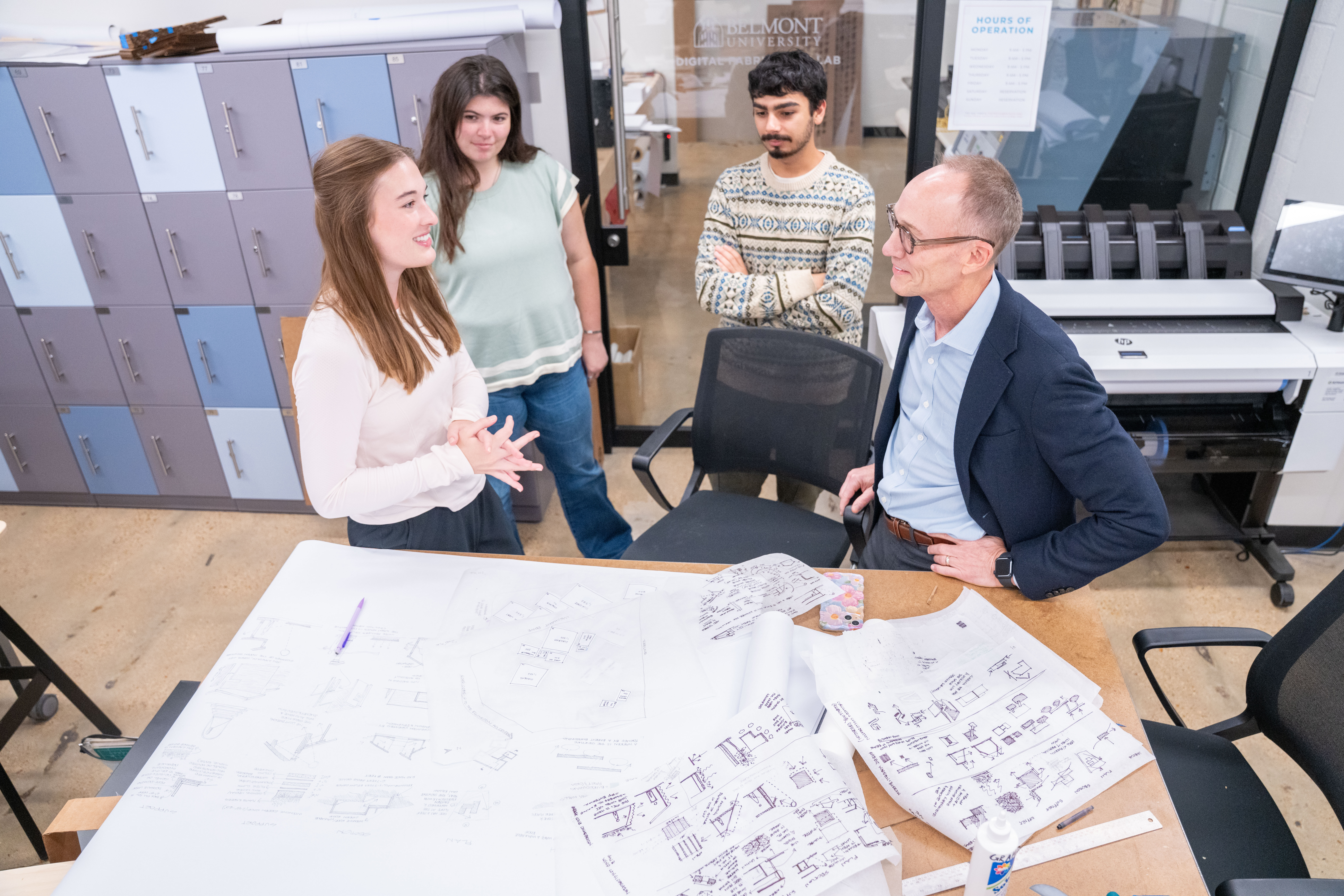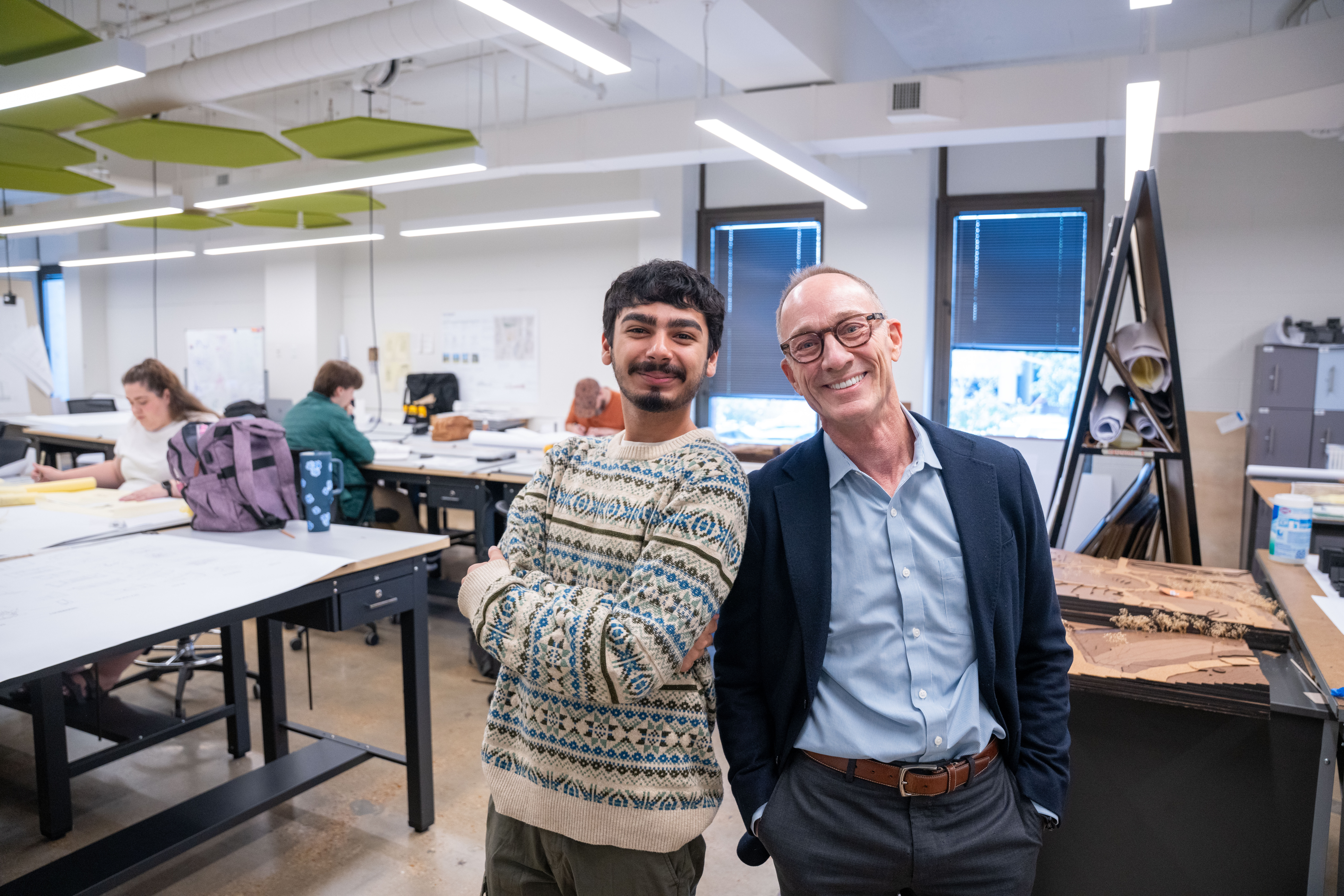O'More dean finds freedom in surrender and embraces a renewed vision for creative work that reflects the heart of God.
Rick Archer’s journey to becoming dean of the College of Architecture & Design was far from typical. It’s a story shaped by both career ambition and personal faith, marked by moments of challenge and renewal that have reshaped how he views his work and his life.
Ambition and Early Success
At just 12 years old, Archer knew he wanted to be an architect. Inspired by his older brother’s dream of becoming a physician, he set his sights on a career that would merge his love of painting with the intellectual challenge he craved. With “aspirations to be famous,” Archer started college at 17 and finished his five-year degree by 22. At 23, he was already a licensed architect.
By all definitions, he had “made it.” He was a successful architect. Yet he recalled, “I was a young architect practicing at a high level, winning design awards and, quite honestly, I was miserable. I had achieved everything that I'd hoped to achieve at a very young age, and I felt very empty. I became keenly aware that I was pursuing the wrong things.”
A Life-Changing Moment

Feeling unsettled in his thriving career, Archer “became reinterested in God and what He had to do with [his] life”. At this crossroads, Archer started exploring faith more deeply. He had heard the story of the rich young ruler in Matthew 10 before, but after hearing it again during this time of personal questioning, he felt something different. He related to the rich young ruler, who, after being commanded to give away his wealth and follow Christ, turned away dejected.
Archer decided he was not going to “go away sad” like the man in the scripture. So, he sold everything he had and gave it to the poor. He also quit his job as an architect and joined a program where he was discipled by other men and women for almost two years. “It literally changed the trajectory of my life,” he said. He spent that time serving as a caretaker at a retreat center while working on the condition of his heart.
Finding Peace Amid Uncertainty
One day, while weeding at the retreat center, he unknowingly encountered poison ivy roots. Being extremely allergic to poison ivy, Archer had a massive allergic reaction that led him to seek medical intervention. His doctor told him that he might never regain use of his hands due to intense swelling that turned his hands blue and ice-cold.
In response to this news, Archer laughed at the irony, saying to her, “I’m an architect, and without these hands, I can’t do architecture.” Despite the uncertainty, he “had a profound sense that God was in control, and that it would be okay if [he] never lived out the thing [he] dreamed about doing throughout my life.”
After surgery, three days of steroids and constantly elevating his hands above his head, he began to regain movement.
“I felt like the Lord was saying, No, I want you to be an architect. I've given you these hands and this mind for this purpose, but I want you to do it differently,” he shared. That experience marked the start of Archer’s journey to understand how his faith could shape the way he practiced architecture.
For the last few decades, Archer has done just that. He’s worked in architecture to help the marginalized, the homeless, the abused, the other-abled, refugees and immigrants.
Finding a Home at Belmont
Introduced to Belmont through the Creative Arts Collective, Archer was drawn to CAC's calling to support people who think about the arts differently. His involvement deepened through the Hope Summit, which eventually paved the way for his invitation to apply for the role of dean of architecture and design.
Though Archer initially doubted his qualifications, those who encouraged him saw potential where he saw uncertainty. In his new role, he feels like “more of a student than a teacher.” Today, Archer finds himself in a season of learning and growth, embracing the challenge with humility and enthusiasm.
A Dean’s Words on What Matters

Because of his journey, Archer encourages college students to make their relationship with God the priority. He also reminds them to “look around, and invest in friendships.” He emphasizes that “life is relationships” and that stressing over things without lasting importance often distracts us from what truly matters.
Learn more about the architecture program at Belmont.

